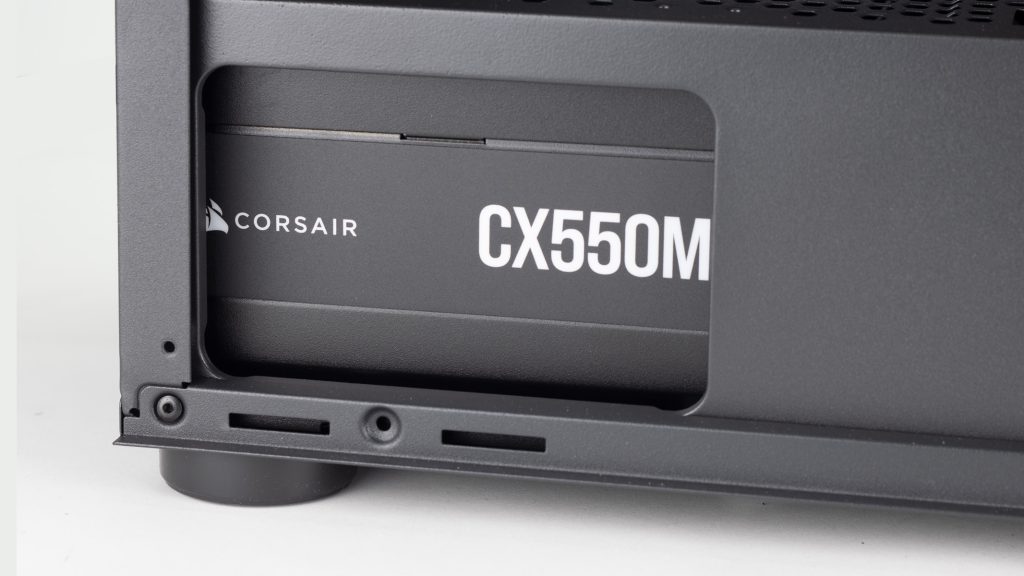
We've all been there, you've specced up your shiny new gaming PC and there's one quite important thing that you haven't really put much consideration in to, the power supply.
Choosing a PSU for your new gaming rig is more difficult than you may think. Most will simply look at the wattage, match it up to roughly what the planned components will use and prey to the gods of the master race that it will all work.
From our experience, a failed or failing power supply is one of the most common hardware faults a PC can have, let alone a high end custom rig like we sell.
Unfortunately, most people are reluctant to invest in a "good" power supply, because "it's just a power supply, right?". Buyers correctly assume that a high end PSU won't make their PC run any faster, so why spend that budget on a PSU when it came be put towards an upgrade to a more important component like the CPU, GPU or RAM. On the other side of the spectrum, some people will pick a PSU that's completely overkill for their needs, like choosing a Corsair HX1200 with an i3 12100F, GTX 1650 based system.
Wattage (W)
Wattage is the most important thing to look at when choosing a power supply, although if you choose a PSU on this credential alone then you are most likely not going to get the ideal PSU for your needs. Many base how good a PSU is on the wattage output is because manufacturers generally stuff the rated wattage in their product names, but this isn't the only stat you need to take into consideration when choosing a PSU.
Efficiency Certification
The power supply efficiency certification standard is known as 80+ or 80 Plus. It certifies that manufacturers power supplies are over 80% efficient at different rated loads for a sustained amount of time.
The efficiency certification is quite important and we'd recommend looking for a power supply with a minimum of a 80+ Bronze. Whilst it's not the "fire and forget" number or rating that will guarantee you have a good PSU it's certainly a good indication whatever you are picking is built with quality in mind.
Picking a higher certification can even save you money on your energy bills. Comparing a 1000W 80+ Bronze power supply to a 1000W 80+ Platinum unit with an efficiency difference of 10% at full load, if it were to be ran for 8 hours a day for 1 year the net energy savings would on average be £79.00. This may be a slightly extreme scenario but it's a good indication of savings over time with more efficient power supply.
Extra Protection
Many of the more modern power supplies will come with added protection in case of power related faults. One of the more common features is overvoltage protection (OVP) where the power supply will shut off if the output voltage exceeds it's limit. This is especially important as high voltage can cause damage to other components in the system which this protection layer aims to stop.
OVP is one of the more common layers of protection but others include Under Voltage Protection (UVP), Short Circuit Protection (SCP), Over Temp (OTP) and Over Power (OPP). Researching what power supplies include these layers of protection is worth doing as having them could save other components in your system.
Form Factor
Depending on the size of your case you may need to consider what form factor of power supply you purchase. Luckily these are fairly standardized and the 2 most common form factors for conventional systems are SFX and ATX. SFX or small form factor unit's tend to be needed for cases designed around the M-ITX motherboard standard. The systems we sell will already have the necessary power supply configured.
The most common size is ATX and suitable for the majority of cases, however, it's still worth keeping an eye on the power supplies dimensions as even unit's that meet the ATX form factor can have different lengths and depending on your case these longer units, normally more common at the higher end with higher wattage, might be a bit of a squeeze.
Connectors & Cables
Something to consider is the hardware you've purchased that needs power. Some power supplies will come with all of the cables connected and fixed into place out of the box, but you can also get semi modular and fully modular power supplies where you can pick and choose what cables need to be used.
This doesn't mean you'll always have the right amount though. Different power supply models will come with a different amount of certain cables so you'll need to check the unit you buy has the right amount or type of connector out of the box. Some of the cables that catch perspective buyers out are 4-pin Molex chains, which often times come in small quantity, SATA cables for all of your storage, and 6+2 pin PCI-E power connectors. With newer graphics cards sometimes needed 3 of these it's warrants a check!
Brands
It's not always good to be a brand snob but when it comes to power supplies there are a few names house names that are worth considering that have built a good reputation. A lot of the power supplies made will likely come out of a small handful of factories but it's good to know the good from the bad.

Brands such as Corsair, CoolerMaster, Seasonic, EVGA, be quiet! and ASUS tend to sit high on the scale for quality. We almost exclusively use Corsair units with some CoolerMaster lines and have no complaints. Some brands have built a reputation for the wrong reasons, such as Gigabyte, who had a batch of units with a severe flaw causing them to catch fire due to an issue with the over voltage protection, which they then refused to acknowledge properly for a long period of time before issuing a voluntary recall for GP-PG850GM and GP-P750GM units.
Conclusion
A power supply should be more than just an afterthought and have a it's fair share of any computer's budget. Taking risks on a power supply purchase is an easy mistake to make but probably has the worse consequences for a PC than any other.
The quality of power supplies has gotten better in the last couple of years and the cheaper, riskier options continue to become less relevant in the market space. UK Gaming Computers recommends a minimum of 450 Watts with an 80+ bronze efficiency rating for entry level systems and an 80+ Gold unit for anyone going for a more serious build with the necessary wattage value to cover all bases.

